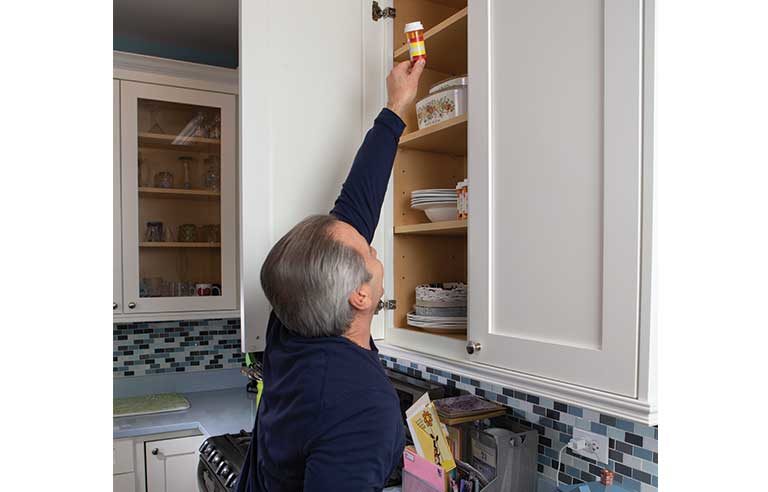Many parents overconfident about safe storage of medications, researchers say

Washington — Parents’ attitudes about safe storage of medications don’t always align with their practices, according to a recent report from Safe Kids Worldwide.
Researchers analyzed multiple Centers for Disease Control and Prevention databases and conducted a series of surveys and focus groups of parents with children 6 and younger about their methods for storing medications in the home. They found that many parents who believed they were storing medicine safely in medicine cabinets or closets adopted a self-assured mindset that made them less aware of their placement of everyday medicines such as pain relievers or antibiotics. These were often kept in easily accessible locations.
“Where parents ‘store’ and where they ‘keep’ medicine may be two different things,” the report states. “Participating parents talked about storing medicine up high, out of reach and sight and described locations that meet that definition. However, they also talked about places like backpacks, purses, diaper bags and cars where they keep medicine, that initially they did not think of when they described where they store medicine.”
Other findings:
- Every day, 142 children younger than 6 – one child every 10 minutes – are treated at emergency rooms after getting into medicine.
- Children between 1 and 3 years old accounted for 84% of ER visits related to medicine poisonings in 2017.
In a March 14 press release, Safe Kids President Torine Creppy said the research shows that parents “are all too often surprised by how quickly their babies grow and change,” so starting safe medicine storage habits at an early age is critical.
Safe Kids advises parents to store all medicine up and away and out of sight. Immediately put away medicine after each use, even if another dose will be taken hours later. Keep visitors’ belongings out of reach in case they contain medicine, and be prepared to call Poison Control at (800) 222-1222 in an emergency.
Post a comment to this article
Safety+Health welcomes comments that promote respectful dialogue. Please stay on topic. Comments that contain personal attacks, profanity or abusive language – or those aggressively promoting products or services – will be removed. We reserve the right to determine which comments violate our comment policy. (Anonymous comments are welcome; merely skip the “name” field in the comment box. An email address is required but will not be included with your comment.)
